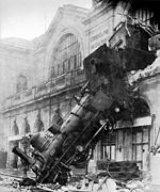
of not meeting a desirable or intended objective, and may be viewed as the opposite of success. Product failure ranges from failure to sell the product to fracture
of the product, in the worst cases leading to personal injury, the province of forensic engineering
.
Thomas J. Watson
is attributed with saying "If you want to succeed, double your failure rate". Wired Magazine
editor Kevin Kelly likewise explains that a great deal can be learned from things going unexpectedly, and that part of science's success comes from keeping blunders "small, manageable, constant, and trackable".
It is impossible to live without failing at something, unless you live so cautiously that you might as well not have lived at all - in which case, you fail by default. ![]()
Failure is not an option. ![]()
In the lexicon of youth, which fate reserves For a bright manhood, there is no such word As – fail.![]()
Half the failures in life arise from pulling in one's horse as he is leaping.![]()
I would sooner fail than not be among the greatest.![]()
Success is simply a matter of luck. Ask any failure.![]()
If at first you don't succeed, cheat, repeat until caught, and then lie!![]()

